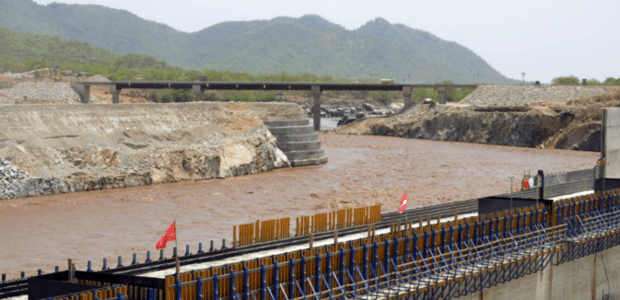advertisement
How electricity is boosting the rise of an African titan Staff Writer
Much of the momentum comes from a government focused on improving the country and its people. The UN has praised…

Much of the momentum comes from a government focused on improving the country and its people. The UN has praised this, noting how Ethiopia invests heavily on pro-poor projects and implements stable economic policies. Its government routinely spends generously on human development schemes, including healthcare, education, infrastructure and social protection. More than 90 percent of Ethiopia’s youth attend school and at 63 it can claim the highest average life expectancy on the continent.
Powering the Future
All of this points to an underlying ambition that has not lost momentum. Ethiopia’s leaders are well aware that their country could become a regional leader, continental heavyweight and international player. One area with a lot of potential to deliver on that ambition is electricity.
advertisement
The ability of any country to maintain its growth is directly related to how much power it can access. Ethiopia needs power to fuel its own growth. But it sits on enough potential generating capacity to become a regional supplier. Small amounts of surplus electricity is already being sold to Sudan and Djibouti. Other countries, such as Kenya, Rwanda and Yemen, are in talks to tap into Ethiopia’s supply.
It could meet a lot of demand. The country is estimated to sit on a potential 45,000 megawatts (MW) of hydroelectric power alone – that does not include its mostly-unexploited geothermal sources. Ethiopia currently generates around 2,300 MW, but aims to add over 12,000 MW more by 2020.
“If modern economies hope to survive and thrive, they have to think out of the box. You can’t simply do what has been done before and think it will work – the 21st century demands new ideas for new societies,” explained Andrew Waititu, Managing Director of SAP East Africa, “Ethiopia’s leaders understand this and they have seen an opportunity. Electric power is a resource that the world will increasingly need in this new millennium and Ethiopia can rise to become Africa and one of the globe’s greatest power providers.”
advertisement
Much of this is outlined and driven by a series of Growth and Transformation Plans (GTP). GTP 1 is reaching its conclusion and included construction of the $4.1 billion Grand Renaissance Dam. This mega hydroelectric project will contribute 10,000 MW once fully online. Other power projects include laying down over 3,000 kilometers of cables for distribution, as well as the development of thermal, solar and wind sources. The grand ambition is to reach 37,000 MW of generation capacity by 2037, making Ethiopia a prime exporter of electricity.
Ethiopia is footing a large part of the bill itself, but appeal for its plan is enough to have attracted investment from private and nation investors, as well as the World Bank.
Laying the Foundation
advertisement
The success of this vision depends on Ethiopia’s ability to effectively manage its power industry. As Ethiopia’s electricity ambitions grew, so did the requirement to manage the entire system with as much ease and simplicity as possible – not to mention agility for future development.
SAP’s industry-specific solutions, implemented by TechMahindra, is helping reduce the legacy silos that kept different operations isolated from each other. It will also facilitate the introduction of best-practice management as gleaned from SAP’s successful projects in the industry.
The solution’s impact is appreciated not only for simplifying and harmonising the countless operations across the Ethiopian Electric Power Corporation (EEPCO), but also helping to transfer key skills to local employees. The value of automating many processes within the country’s electricity ecosystem is becoming apparent and it is no surprise that Ethiopia already regards SAP’s implementation as a strategic component for accomplishing their mandate.
“At SAP we often talk about how we can transform companies and sectors,” added Waititu. “But this project is so much more. It’s not about being competitive, but to support an entire nation in raising its future by becoming a leader, not a follower. Wouldn’t it be great to look back a few decades from now, see Ethiopia as a global powerhouse, and know that SAP had a role in that? It will be one of the proudest moments in our company’s history.”
Ethiopia still has a long journey ahead of it. But as the much-lamented saying goes: Rome wasn’t built in a day. Neither was Ethiopia’s electricity projects. Yet where other governments may find room for complacency, Ethiopia is focused on what it can become tomorrow. One day the world may talk of Addis Ababa in the same tone as such global giants like New York, London or Beijing. To get there the country knows it needs the skills, flexibility and technology pedigree to turn gains into the bedrock of a prosperous society – something SAP is proud to be able to play a role in.